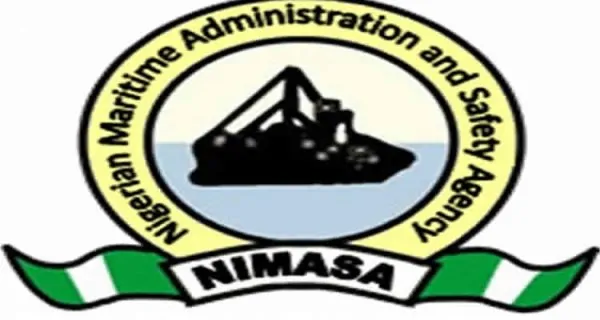The Director General of Nigerian Maritime Administration and Safety agency (NIMASA), Dr Bashir Jamoh has expressed worry over the persisting War Risk Insurance on Nigeria-bound cargoes, calling for its removal.
This came as it has been disclosed that Nigeria’s maritime trade is threatened due to the increasing war risk insurance premium now being paid by Nigeria-bound vessels.
Dr. Jamoh said though piracy in the Nigerian waters is waning, stakeholders in the industry are worried that offshore underwriting firms still insist on very high premium to be paid by those conveying cargoes to Nigeria.
War risk insurance is a type of insurance which covers damage due to acts of war, including invasion, insurrection, rebellion and hijacking. Some policies also cover damage due to weapons of mass destruction. It is most commonly used in the shipping and aviation industries.
Speaking during the recent official flag-off of the Deep Blue Project in Lagos by President Muhammadu Buhari, Dr Jamoh said: “Since the deployment of the Deep Blue Project assets in February, there has been a steady decline in piracy attacks in the Nigerian waters on a monthly basis.
“We therefore invite the international shipping community to rethink the issue of war risk insurance on cargo bound for our ports. Nigeria has demonstrated enough commitment towards tackling maritime insecurity to avert such premium burden.”
According to nonprofit Oceans Beyond Piracy’s 2020 reports, the total cost of additional war risk area premiums incurred by Nigeria-bound ships transiting the Gulf of Guinea was $55.5 million in 2020 alone, and 35 per cent of ships transiting the area also carried additional kidnap and ransom insurance totaling $100.7 million.

Insecurity got so bad in the region before the deployment of the deep blue project that global insurance firm Beazley now offers ‘Gulf of Guinea Piracy Plus’, a bespoke insurance plan for maritime crew traveling through the area.
The plan provides compensation for illegal vessel seizures and crew kidnappings even in the absence of ransom demands. It tracks insured vessels on a 24-hour basis, but because the risks are so high, it limits claims to $25 million.
“While the Deep Blue Project enters implementation stage, NIMASA will not be complacent as it will continually evolve strategies including wide consultation with stakeholders and application of cutting edge technology in the fight against maritime insecurity,” he said.


